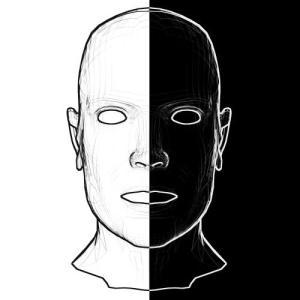
To what extent can a religious believer actually argue their faith, reasonably? Not very far, it seems to me.
There are two quantities to consider here, by which all human beliefs can relate back to: Faith and Evidence.
Let’s look at the first. Faith, by its very definition, is ‘belief without evidence’. It is a gut feeling, and it cannot be proven wrong. Why? Because, for something to be ‘proven wrong’ evidence has to come into play, and Faith stays strong regardless of counter-evidence to its claims. When considering God, the only argument one can ever draw is that ‘God can’t be dis-proven’. Whether this is a strong argument or not for a specific religion’s creator is irrelevant – people still use the argument, failing to accept/realise that it can also be applied to Zeus, or Santa…
The other side of the attempt to justify religious claims is, well, to say that there is evidence for them. I of course disagree with this post-hoc, presumptuous mindset, but I can see why people like Pope Pius XII have, over the years, jumped at the chance to declare that science has proven what they knew all long. It’s a simple desperate grasp at reconciliation with reality.
Why do I mention Pius? Well, in response to The Big Bang Theory in 1951 he made this claim:
It would seem that present-day science, with one sweep back across the centuries, has succeeded in bearing witness to the august instant of the primordial Fiat Lux [Let there be Light], when along with matter, there burst forth from nothing a sea of light and radiation, and the elements split and churned and formed into millions of galaxies. Thus, with that concreteness which is characteristic of physical proofs, [science] has confirmed the contingency of the universe and also the well-founded deduction as to the epoch when the world came forth from the hands of the Creator. Hence Creation took place. We say: “Therefore, there is a Creator. Therefore God exists!”
The only problem was that once Pius declared evidence for Genesis, the absolute truth of Creation became falsifiable. If the Big Bang Theory ’proved’ the existence of God, yet was open to criticism and review like any other aspect of science, then Creation had lost its absolute ‘truthfulness’.
Others around him realised this, and after ‘advice’ he never again said a word on the subject.
Pius experienced first-hand the Faith/Evidence paradox. I don’t know if this phenomena has a set definition (or if I am calling it by its most widely-used name), but I imagine it goes something like this:
- Faith-based claims are unfalsifiable by nature. They cannot be ‘proven wrong’.
- Evidence-based claims are falsifiable by nature. They have the capacity to be ‘proven wrong’ if counter-evidence comes to light.
- A claim cannot be both unfalsifiable and falsifiable.
- Therefore, a claim cannot be both faith-based and evidence-based if it is to be considered intellectually honest.
So, it seems that, unless my logic is flawed, believers most certainly can’t have their faith-cake and eat it too. They can either admit that their beliefs are nothing more than faith-based (and therefore acknowledge that their respective holy books are mere metaphor as opposed to literally true), or attempt to ‘prove’ all of it. The latter is often called fundamentalism.
But, of course, it’d be naive to suggest that religious folk only come in two flavours – religious agnostics or die-hard fundies – as this is obviously not the case. What is sadly true though, is that the very nature of belief, of faith, is one of complacency.
It simply doesn’t matter to the average believer that they demand so much evidence for, say, a fact like evolution while they hypocritically simultaneously declare that their chosen holy book is proof of itself. It should, but it doesn’t… Because if it did, they’d surely join the ranks of the ex-religious (as a significant, ever-rising number continue to do).
This is basic reasoning people. Use it.
Carnun 

